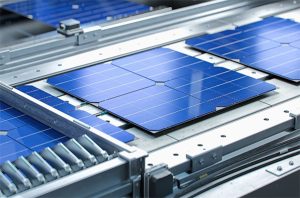Introduction to Solar Energy
Solar energy harnesses the power of the sun to generate electricity, offering a sustainable and eco-friendly alternative to traditional energy sources. In recent years, the efficiency and affordability of solar panels have improved significantly, making them an increasingly popular choice for both residential and commercial energy needs.
Solar Panel Output Basics
Key Factors Influencing Output
The output of a solar panel depends on several factors, including its size, efficiency, and the amount of sunlight it receives. Generally, a standard solar panel produces between 250 to 400 watts of power. However, the total energy output in kilowatt-hours (kWh) depends on the panel's exposure to sunlight and its efficiency.
Efficiency and Quality of Solar Panels
The efficiency of a solar panel is a critical factor. It refers to the percentage of sunlight that the panel can convert into usable electricity. Higher efficiency rates mean more power generation. The quality of materials used in the panel also impacts its efficiency and longevity.
Optimal Conditions for Maximum Output
Solar panels generate the most energy when they receive direct sunlight. Factors like the angle of installation, geographic location, and weather conditions play significant roles in determining daily energy output.
Average Daily Output of Solar Panels
Calculating the Kilowatt-Hours (kWh)
To estimate the average kWh generated by a solar panel per day, we multiply the panel's wattage by the number of sunlight hours it receives. For instance, a 300-watt panel receiving 4 hours of sunlight per day would generate about 1.2 kWh daily.
For more detailed insights into solar kWh per day, you can visit this link.
Factors Affecting Daily Output
Daily solar output can vary due to factors like seasonal changes, geographic location, and weather patterns. For example, panels receive more sunlight during summer than in winter.
Economic and Efficiency Considerations
Cost and Budgeting for Solar Panels
The cost of solar panels has decreased over the years, but it's still a significant investment. The total cost includes not just the panels but also installation and any necessary electrical systems upgrades.

Efficiency Versus Cost
While higher efficiency panels are more expensive, they are often a better long-term investment as they generate more power and can be more space-efficient.
Lifetime Value and Quality
Solar panels typically have a lifespan of 25-30 years. Investing in quality panels ensures a longer lifespan and more consistent output over time.
Size and Specifications
The size of a solar panel affects its output and efficiency. Larger panels tend to have higher wattage and can generate more electricity, but they also require more space.
Conclusion: Maximizing Solar Potential
Harnessing solar energy effectively requires understanding the intricacies of solar panel output, including the impact of efficiency, size, and environmental factors. By considering these elements, homeowners and businesses can make informed decisions about integrating solar energy into their energy solutions.